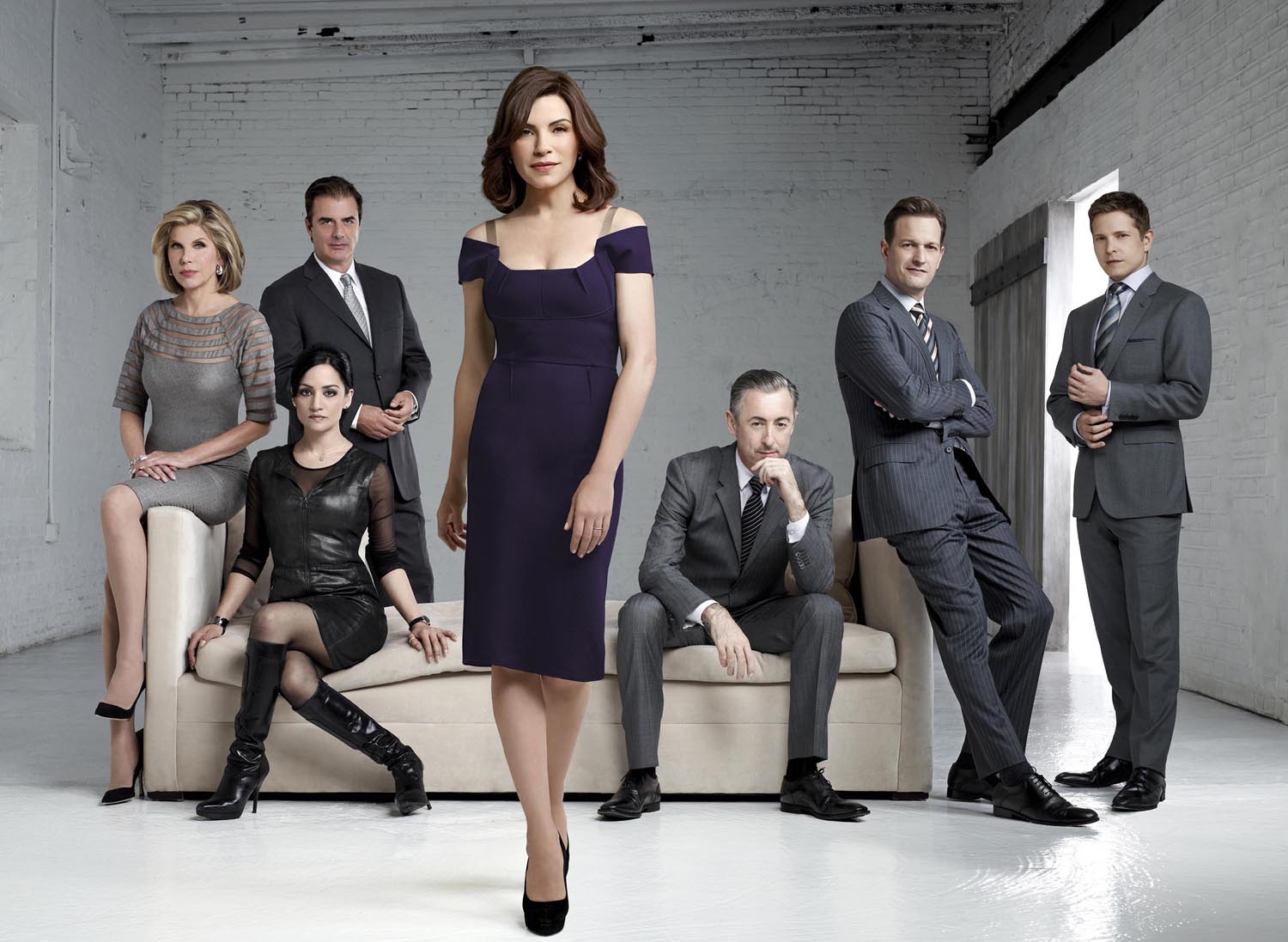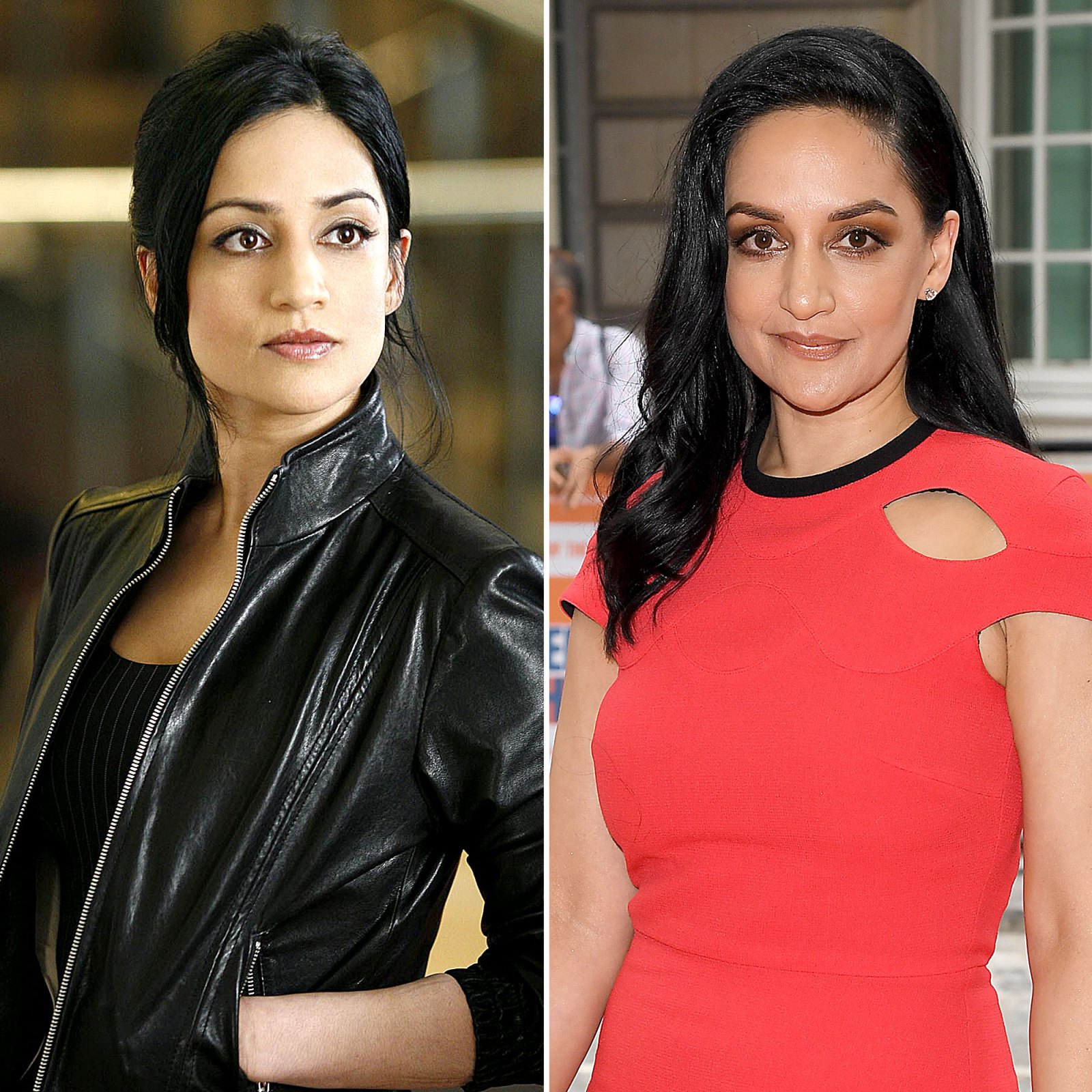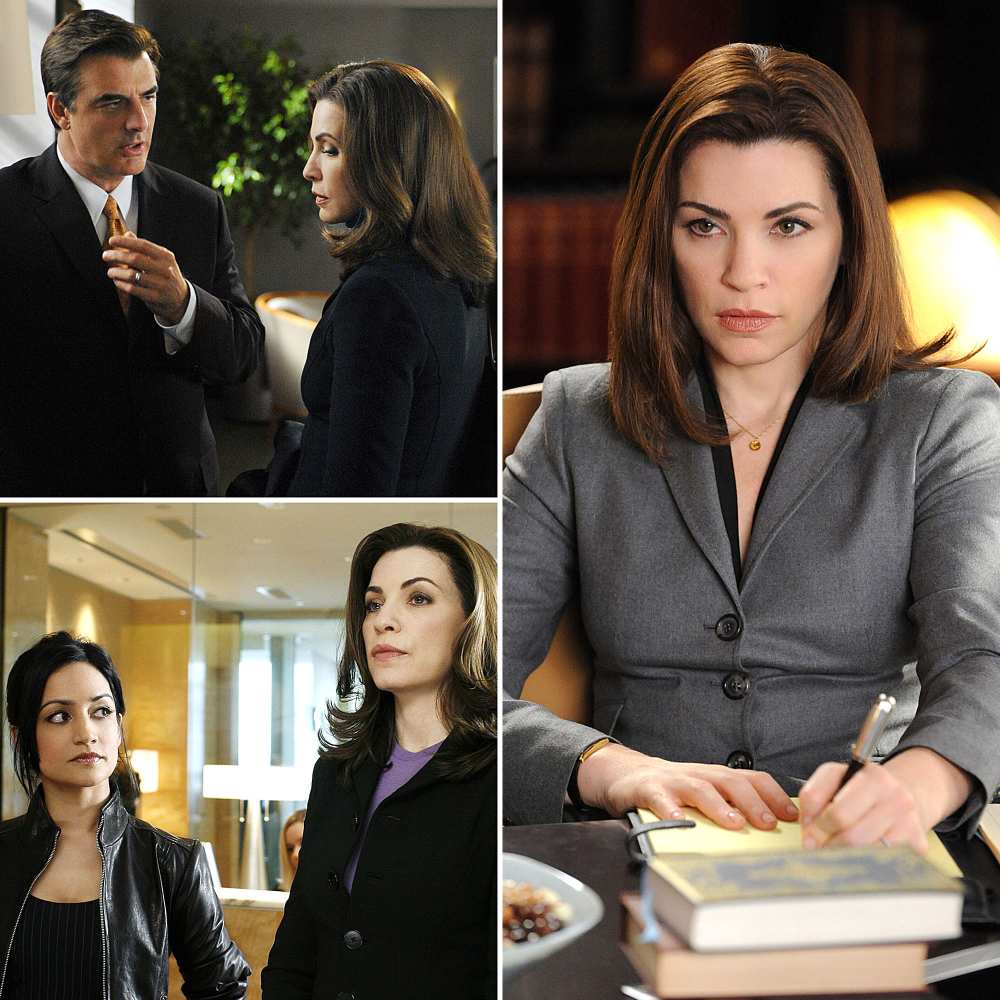Could a television drama, born from the ashes of political scandal, truly capture the complexities of modern life and resonate with audiences for seven seasons? "The Good Wife" not only achieved this, but it also became a critical and commercial success, earning widespread acclaim for its writing, acting, and its unflinching portrayal of a woman navigating the treacherous waters of law and politics.
The series, which aired on CBS from September 22, 2009, to May 8, 2016, offered a compelling narrative that resonated with viewers and critics alike. "The Good Wife" isn't just a legal drama; its a character study, a political commentary, and a reflection of the ever-changing landscape of contemporary society. The show's creators, Michelle and Robert King, crafted a world filled with morally ambiguous characters, intricate plotlines, and a deep understanding of the human condition. The show focused on Alicia Florrick, portrayed by Julianna Margulies, who returns to her career as a lawyer after a public scandal involving her husband, Peter Florrick, a Cook County State's Attorney. The series explores her journey of personal and professional rediscovery, navigating the complex interplay of law, politics, and family life in Chicago.
| Full Name | Julianna Margulies |
| Born | June 8, 1966 (age 57) |
| Birthplace | Spring Valley, New York, U.S. |
| Occupation | Actress, Producer |
| Years Active | 1991present |
| Notable Role | Alicia Florrick in "The Good Wife", Carol Hathaway in "ER" |
| Spouse | Keith Lieberthal (m. 2007) |
| Children | 1 |
| Awards | 3 Primetime Emmy Awards, 1 Golden Globe Award, 2 Screen Actors Guild Awards |
| Website | IMDb |
The show's premise was simple: a woman's life is upended by her husband's public disgrace. The series, however, never settled for simple answers. Instead, it explored the intricacies of human behavior, the complexities of the legal system, and the often-blurred lines between right and wrong. The writers consistently provided thought-provoking storylines, never shying away from difficult subjects such as political corruption, marital infidelity, and the ethical dilemmas faced by lawyers and politicians alike. This commitment to realism, combined with strong performances from a talented ensemble cast, is one of the key elements to its success.
The show's success rested on its ability to present a world that was both believable and aspirational. "The Good Wife" did not shy away from the gritty realities of the legal profession, the cutthroat world of politics, or the messy complications of family life. It presented a realistic portrayal of the challenges that Alicia Florrick faces as she tries to rebuild her life after her husband's arrest for corruption. From the outset, it was clear that Alicia was not a victim but a survivor. She was determined to reclaim her identity and career. This tenacity was a key element that made her a compelling character, and viewers were drawn to her strength and resilience in the face of adversity.
The supporting cast of "The Good Wife" was equally crucial in the series' triumph. Christine Baranski as Diane Lockhart, a brilliant and morally upright lawyer, added a layer of sophistication and depth. Matt Czuchry, as Cary Agos, and Josh Charles as Will Gardner, added intrigue, forming the love triangle that was central to the series. Archie Panjabi, as Kalinda Sharma, brought a mysterious edge to the show as the investigator, and Alan Cumming, as Eli Gold, offered a sharp political commentary. These characters all had their own distinct personalities, motivations, and flaws, and they were all written with incredible nuance and depth. They were not simply plot devices; they were fully realized characters who grew and changed throughout the series.
The casting decisions were spot-on, with each actor perfectly embodying their character. Julianna Margulies, in the leading role, delivered a tour-de-force performance, earning her critical acclaim and numerous awards, including three Emmy Awards. Her portrayal of Alicia was captivating, nuanced, and immensely relatable. She demonstrated a remarkable ability to convey the inner turmoil of a woman struggling to find her place in the world. The emotional depth she brought to the role was undeniable and became a cornerstone of the show's impact.
The series approach to legal cases was another strong point, weaving them into the central narrative. The legal cases explored ethical dilemmas and moral gray areas, which gave the writers the opportunity to explore complex issues. The show also did an excellent job of showcasing the legal profession in a way that was both accurate and exciting. Unlike other legal dramas that tended to focus on courtroom theatrics, "The Good Wife" gave viewers an inside look at the day-to-day lives of lawyers, from the meticulous research and preparation to the strategizing and negotiation. The legal cases were not simply plot devices; they were integral to the character development and the overarching themes of the series.
The show's writers were adept at weaving multiple storylines together, creating a rich and textured narrative. They masterfully interwove the personal lives of the characters with the legal cases, adding layers of complexity and intrigue. Each episode felt like a carefully constructed puzzle, with the different pieces fitting together to create a larger, more meaningful picture. The show's ability to balance the legal and personal aspects of the characters' lives was a major factor in its critical and commercial success.
The show's use of Chicago as a setting further enriched the narrative. The city provided a distinct backdrop for the characters' stories, and the writers used the city's culture and political landscape to add layers of depth. The show filmed on location in Chicago, and the show's writers did their research to create a genuine portrayal of the city. It wasn't just a backdrop; it was a character in its own right.
Season after season, "The Good Wife" maintained a high level of quality. The fifth season, which began airing on September 29, 2013, is often regarded as the series' best. The season received critical acclaim, with many critics calling it the series' best. The show's critical resurgence and creative renaissance won the season the TCA Award for Outstanding Achievement in Drama and the Writers Guild of America Award for Television: Dramatic Series. The show's ability to maintain its quality throughout its run is a testament to the talents of the writers, the actors, and the entire production team.
The show's creators, Michelle and Robert King, are masterful storytellers. They built a world that was complex, nuanced, and constantly evolving. The Kings talent extends beyond the legal cases. They were masters of character development, crafting compelling characters who grew and changed throughout the series. The husband-and-wife team were also skilled at creating suspense and intrigue. The show was never predictable, and viewers were constantly kept on the edge of their seats.
The series explored the impact of technology and social media on the legal profession and society, showcasing the use of data and information, which added a contemporary feel to the series. The show was innovative in its use of technology and it did not shy away from incorporating technology into the legal cases. The series also delved into the ethical issues surrounding the use of technology, like privacy, which added another layer of realism to the show.
| Television Series Title | The Good Wife |
| Genre | Legal Drama, Political Drama |
| Original Run | September 22, 2009 May 8, 2016 |
| Network | CBS |
| Creator(s) | Michelle King, Robert King |
| Starring | Julianna Margulies, Matt Czuchry, Christine Baranski, Archie Panjabi, Josh Charles, Alan Cumming |
| Setting | Chicago, Illinois |
| Number of Seasons | 7 |
| Number of Episodes | 156 |
| Awards and Recognition | Primetime Emmy Awards, Golden Globe Awards, Screen Actors Guild Awards, Peabody Award, AFI Awards |
The legacy of "The Good Wife" extends beyond its original run. It has spawned a spin-off series, "The Good Fight," which continues the story of Diane Lockhart, and another spin off "Elsbeth," bringing the characters to a new set of audience. "The Good Wife" has also influenced other television shows. Its blend of legal drama, political intrigue, and character development has set a new standard for television drama.
The show also demonstrated the importance of strong female characters. Alicia Florrick was not just a wife and mother but a woman with her own ambitions and desires. Diane Lockhart, a brilliant and successful lawyer, was another example of a strong, independent woman. The show provided a platform for complex female characters who were not afraid to challenge the status quo. The show's feminist themes and its focus on the female experience helped to usher in a new era of female-led storytelling on television.
The show also tackled issues of race, class, and gender. The show explored the complexities of race, class, and gender. The show explored these issues with nuance and sensitivity. The shows exploration of social issues made it a relevant and important show. This focus on social issues added depth and complexity to the show.
The series included a number of guest appearances, which enriched the narrative. The show featured a variety of guest appearances, which kept the show fresh and interesting. The shows guest appearances included many talented actors who added depth and complexity to the show. These guest appearances helped to keep the show fresh and interesting.
The show's ending, which aired in 2016, was a poignant and fitting conclusion to the story. The finale was a masterclass in storytelling, tying up the loose ends while leaving some questions unanswered. The series finale was a fitting conclusion to the shows run. The show's ending was both satisfying and thought-provoking, leaving a lasting impression on viewers.
In an industry known for its fleeting trends, "The Good Wife" proved that intelligent, well-crafted storytelling, combined with a commitment to realism and compelling characters, can lead to lasting success. The shows critical acclaim, its commercial success, and its cultural impact all underscore its significance. "The Good Wife" remains a benchmark for legal dramas, and it is a show that continues to be watched and admired by audiences around the world.
The impact of "The Good Wife" extends beyond its success as a television show. It has had a lasting impact on television. It set a new standard for legal dramas. "The Good Wife" has also been praised for its realistic portrayal of women in the workplace and in politics. The show has inspired other shows with complex female characters, and it remains a beloved show by viewers.
The shows characters have resonated with viewers long after the series ended. Alicia Florrick is an inspiring character, and her journey of self-discovery has resonated with viewers. Diane Lockhart is a powerful woman, and her confidence and intelligence have also resonated with viewers. The show's characters are a testament to the power of good writing and strong performances. The characters have left a lasting impact on viewers. They are characters that viewers continue to discuss and admire.
The writing in "The Good Wife" was always sharp, witty, and intelligent, which has contributed to the show's popularity. The shows writing was intelligent, and its dialogue was realistic. The show's writing was one of the major factors contributing to its success. The show's writers were masters of dialogue, crafting witty and intelligent conversations between the characters. The dialogue was not only entertaining but also served to advance the plot and develop the characters.
The shows ability to stay relevant throughout its run contributed to its success. The shows ability to stay relevant helped to ensure its longevity. The show's storylines were often ripped from the headlines, and the show tackled contemporary issues with intelligence and sensitivity. The show's ability to reflect the world around it made it a relevant and engaging show. The shows relevance is one of the key reasons why it continues to be popular.
The shows blend of genres legal drama, political thriller, and character study also contributed to its success. The show blended genres in a way that made it unique. The show combined elements of legal drama, political intrigue, and character development. The show's unique blend of genres made it a popular show. The combination of genres kept the show fresh and exciting. The show's ability to blend genres made it a must-watch for viewers.
The legacy of "The Good Wife" is secure. It will continue to be watched, admired, and studied for years to come. It is a show that has earned its place in television history. The show's legacy is a testament to the power of television. "The Good Wife" is a reminder of the power of television to tell stories. The show will continue to influence television for years to come.


